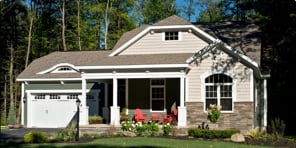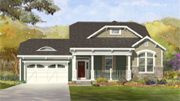Many people have fallen in love with the idea of living in a historic home. New England is awash with older homes that feature great historic details -- people dream of the day that they’ll be able to buy one. After making their dream purchase, however, too many buyers discover that their new home is a nightmare.
Historic Homes Need to Stay Historic
The main draw of a historic home is also its main drawback. That means dealing with a ton of laws and restrictions about what can be improved and repaired on your own property. While most people in the market for a historic home expect some degree of government oversight, very few of them realize how detailed these regulations are.
Most historic homebuyers are aware that they cannot change the basic structure of their home; they cannot add a bedroom or extend the kitchen, for example. That’s why smaller historic homes have a relatively low demand, they just won’t work for growing families. Few people realize, however, that the government and historic preservation societies can control what they do inside the home.
In fact, most communities have rules that prevent homeowners from changing historic details inside their home, installing major improvements, or even swapping out light fixtures without permission. More restrictive communities only allow the homeowner to perform repairs; no improvements at all are allowed. That means no modern wiring, internet access, or safety features in some places.
When repairs are approved, the homeowner must find a historic replacement. For example, a house built in the 1850s that needed new flooring would require boards of similar make from the 1850s. Finding those materials can mean that even the smallest of home repairs can cost thousands of dollars.
Old Homes = High Maintenance
Historic homes rarely have modern insulation, costing homeowners hundreds of dollars’ a month to heat and cool. Older wiring usually means that these homes cannot have modern appliances, either.
Learn more about the pros of buying a new home
While owning a historic home may be a wonderful fantasy, the reality is that the owners of these properties spend most of their free time and money making repairs and appeasing local community boards in order to make their property livable. If you don’t have the time or money to deal with multiple government groups dictating what you can and can’t do on your own property, then it’s probably a good idea to find something else.
A better plan for most families is to pick a home in a new neighborhood. New construction comes with virtually no maintenance issues, and everything in the home is already up-to-date. Your appliances are brand-new, not only saving you money in energy costs, but also helping you to avoid replacement costs for years.
Buying new construction doesn’t mean giving up the architectural details that you love in older homes, though. Many new houses feature large windows, hardwood floors, large porches, built-in bookcases and attractive molding and other finishes.





.svg)
.jpg?width=83&name=30th%20Anniversary%20seal%20digital2%20(1).jpg)

